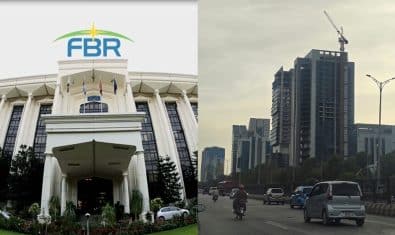By Usama Gulham Rasool
The recent increase in the federal excise duty rate on cigarettes in Pakistan has helped local businesses while making multinational companies pay all of the taxes. This has raised concerns among experts and stakeholders that the government’s policy is encouraging tax evasion and smuggling, and putting the legal cigarette industry at a disadvantage.
Pakistan’s government has been struggling to bring in more money in the face of a growing budget deficit and foreign debt obligations. The tobacco industry is one of the major contributors to the national exchequer, accounting for over 1.5% of the country’s GDP and providing direct and indirect employment to millions of people.
But the tobacco industry faces a number of problems, such as tax evasion, illegal production, and smuggling, which not only hurt the government’s ability to get money, but also put the public’s health at risk.
In order to deal with these problems and bring in more money, the government has raised the federal excise duty rate on cigarettes. This has led to unintended results.
In a recent briefing to the Senate Standing Committee on Finance, Chairman FBR told the committee that the FBR has protected local cigarette companies from FED rate hikes.
The government has not made major changes in federal excise duty rate for the second tier of cigarettes, which includes mostly local brands. However, major increase in the FED on cigarettes was made for the brands manufactured by the multinational companies.
The federal excise duty on brands manufactured by multinational companies has been fixed at Rs 16.5 per cigarette, which has increased the price of a cigarette stick from Rs 16.5 to Rs 25.5. The FED rate per cigarette was fixed at Rs 5.05 per cigarette, giving a discount to local companies on the increase in federal excise duty.
An economic expert said that price increases caused by excise taxes have made the price difference between locally made cigarettes that pay taxes and those that don’t pay taxes much bigger.
This has encouraged the mushroom growth of cigarette manufacturing units in Pakistan and AJ&K which continue to under-declare their volumes and evade taxes totaling more than Rs 80 billion per year.
The growing price gap has also led to an increase in the number of illegal and tax-evading cigarettes on the market. These cigarettes are bad for public health and cause the government and legal tobacco industry to lose money.
With a 40% market share of illegal cigarettes, Pakistan is the largest illegal cigarette market in Asian countries.
The documented cigarette industry consisting of two companies with a market share of 60% paid around 150 billion rupees out of the total revenue of 153 billion rupees last fiscal year, while 50 local cigarette manufacturing companies with 40% market share paid a tax of 3 billion rupees.
High taxes are making legal cigarettes more expensive, while cheap and illegal cigarette brands that don’t have to pay taxes are quickly growing their market share. To cover the budget deficit, more taxes are being put on the organized sector and tax-paying industry. This makes it hard for people to invest.
Experts have asked the government to give the legal cigarette industry the same business opportunities. They have also said that taxes should be the same for all cigarette makers to stop the rapid decline in sales of legal cigarettes.
The increasing market share of illegal cigarettes not only threatens public health but also puts the legal tobacco industry at a disadvantage, which may result in a loss of employment and revenue for the government.
Usama Ghulam Rasool is a freelance writer with a keen interest in science and technology.





















